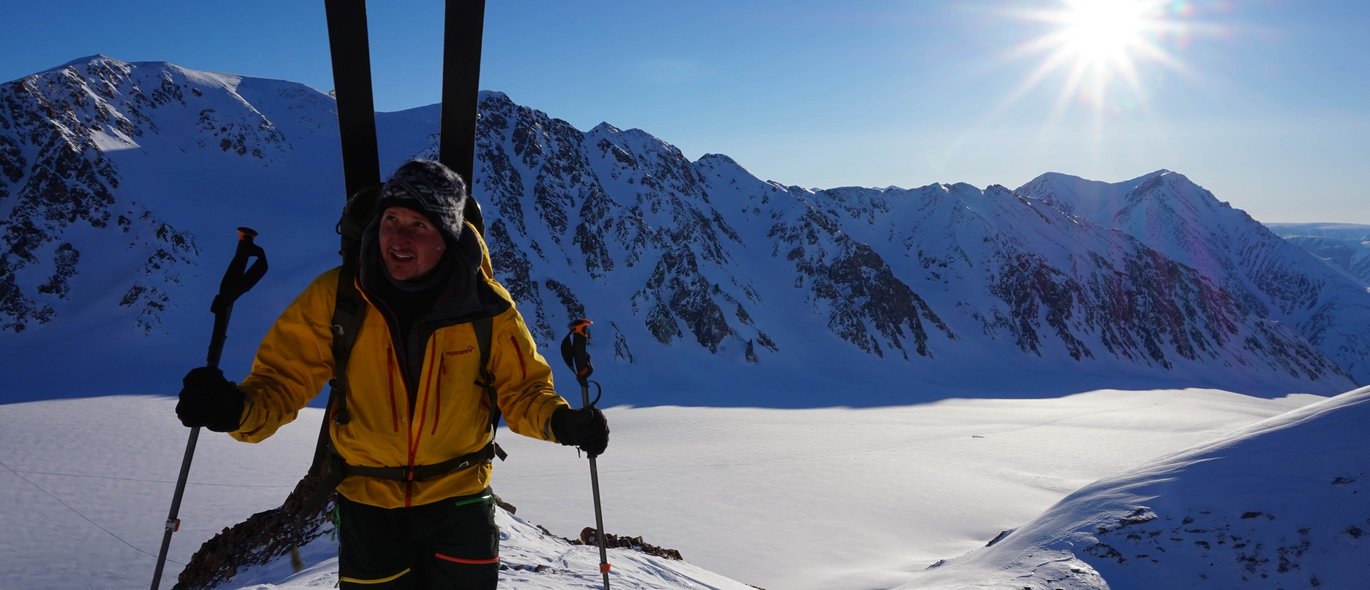GEM Scientist of the month - August

The GEM Scientist of the month in August is Daniel Binder from Austria. Daniel works for the GlacioBasis programme in Zackenberg and Disko, and is affiliated partly with the Glaciology and Climate Department at GEUS, and partly with the Climate Research Section of the Austrian weather service (www.zamg.ac.at).
Daniels first trip to Zackenberg was back in 2008, where he was lucky to be able to join the FERMAP project, which was an Austrian Initiative to the International Polar Year IPY. Since then, his interest in the Arctic increased continuously, as it does to most people experiencing the Arctic. The FERMAP project initiated the Freya glacier mass balance monitoring, which is still running. Naturally, Daniel started collaborating with the GEM GlacioBasis programme, as monitoring at the near-by A.P. Olsen Ice Cap started around the same time as the monitoring of Freya. In the recent years this collaboration led to regular research stays, as well as employments in the Glaciology and Climate Department at GEUS, where the GlacioBasis programme is based.
Remembering his most memorable fieldwork experience is not easy as there are so many – both good and bad experiences. However, Daniel remembers challenging field work, where the main question of the day would be 'Why am I still doing this?' In the end, he thinks it's the diversity and intensity which makes almost every fieldwork campaign memorable.
“To sum it up, a quote from an unplanned four days tent stay due to bad weather:'There is no average in fieldwork.' “
Being asked about the advantages Arctic field work and working for GEM, Daniels says: “ It's just never boring and you will always learn new stuff, and you don't need to deal with daily administration - you are there to do your job, and you don't need to think about anything else - that's simple and relieving! However, the home-coming after a fieldwork period is definitely also a great part of it!”
As a trained geophysicist Daniels’s research focuses on the cryosphere and gravitational mass movements. Furthermore, he sees the advantage of long-term time series that are building an important baseline for many research questions in the fields of natural sciences. One of his concerns for the future, is the difficulty of sustaining these long-term monitoring projects in the current scientific funding system. This is also the strength of GEM, as the programme assures the continuity of all Basis Programmes for longer time periods, which provide fundamental data for urgent research questions. Another advantage of the programme is the exchange and collaboration in and between the five different Basis programmes, which also provides a lively and stimulating research environment.
For the future Arctic research, Daniel hopes for more funding – and as an Austrian researcher, especially a solid, long-term Austrian Arctic research initiative!